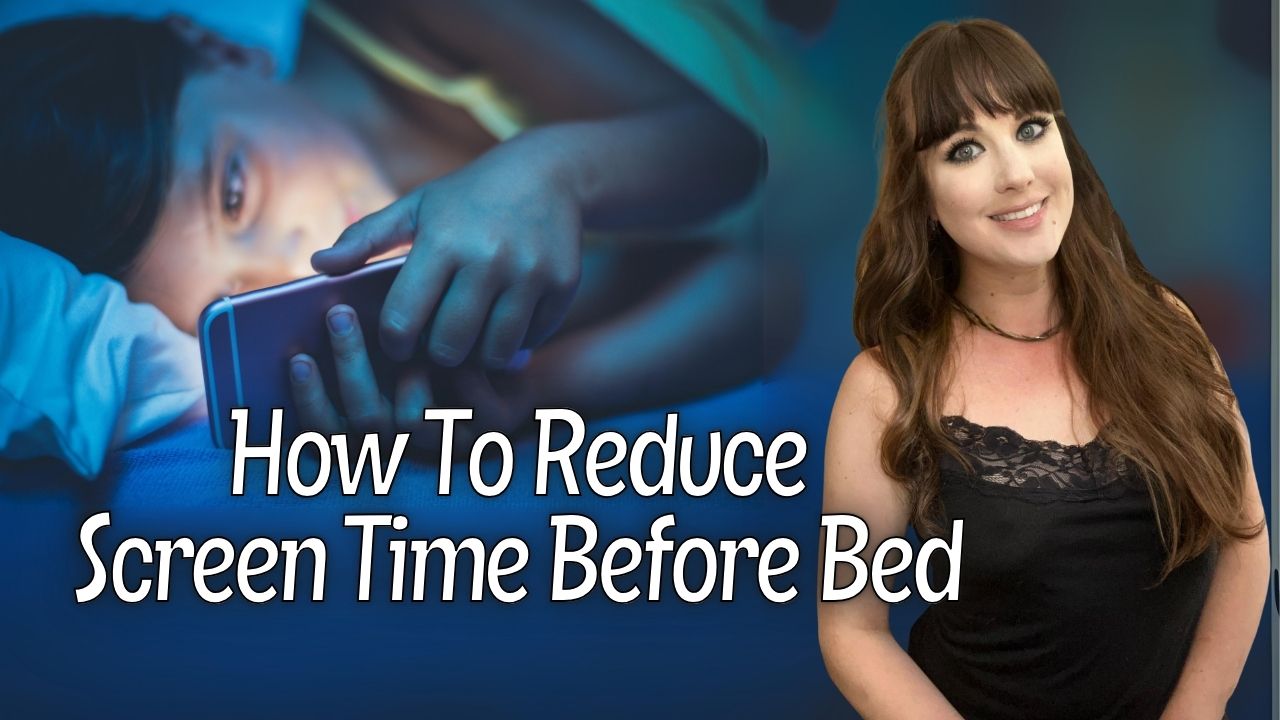
As an Amazon Associate I earn from qualifying purchases.
On the JJ Barnes Blog, I discover the true damage of screen time before bed, and top tips for how to reduce it and break the habit.

Screen Time Before Bed
Confession time: my phone is basically an extension of my arm. I check it first thing in the morning, and let’s be honest, it’s usually the last thing I see before drifting off (or not-so-drifting-off) to sleep. For various reasons I struggle with my sleep, and I’m sick of waking up feeling groggy, so I decided it was time to find out if screen time before bed is as big a part of the problem as I fear it is.
I’m not alone with this bad habit. According to a YouGov study on sleep, 87% of Britons say they look at their phone or tablet within an hour before going to bed, with 25% claiming they look at their phone immediately before going to sleep. On top of this, 74% of people say they keep their phones in the bedroom at night.
To help me understand the damage of screen time before bed, and why I really should tackle it, experts at Brown’s CBD have sent over a list of negative consequences that late-night screen time can have on your sleep, mood, and overall health.
Reasons To Quit Screen Time Before Bed
While the blue light emitted from electronic devices has often been attributed to things such as sleep disruption, research suggests a broader negative impact.
Cognitive impairment
The blue light emitted from your device’s screen is part of the light spectrum most active in your sleep cycle. When stimulated, this part of the brain suppresses the production of the sleep hormone melatonin, making it difficult for people to switch off at night.
The resulting sleep deprivation from this stimulation can lead to excessive daytime sleepiness and a loss in concentration that can hinder the ability to perform basic daily tasks, more commonly known as ‘brain fog’.
Poor physical health
Skimping on sleep due to late-night scrolling can cause a ripple effect that can pose profound long-term health implications. Sleep deprivation has been linked to a myriad of physical health issues, including high blood pressure, heart disease and obesity.
Poor sleep quality is known to negatively impact hormones that regulate everything from blood sugar to appetite.
Depression, stress, and anxiety
While not explicitly focused on late-night scrolling, research conducted over the last few years has suggested a strong link between depression and prolonged periods of screen time, especially in adolescents.
A 2023 study conducted by The Yale School of Medicine reported that more than 5,000 9–10-year-olds’ time spent on digital technology directly correlated to the likelihood of developing anxiety and depression within a couple of years.
How To Reduce Screen Time Before Bed
Whilst there are many consequences strongly associated with late-night screen time, there are also many ways to combat the urge to reach for your phone before bed.
Establish a nighttime routine
Switching off your devices a few hours before bed allows your brain to de-stress and prepare for sleep. Replacing screen time with calming bedtime rituals such as taking a bath, reading, or engaging in light exercise can help signal to your body that it’s time for bed.
Utilise digital detox tools
Ironically, you can actually use your devices to help support your sleep routine, by utilising a wide range of apps and functions. Features such as ‘sleep mode’ can help reduce blue light and block notifications to help your brain de-stress before sleep.
There is also a wide range of apps available, such as Headspace or Calm, that you can use to establish better nighttime routines by providing features such as guided meditation sessions to help unwind in the evening.
Re-evaluate your sleep environment
Simple changes to your sleep environment can have a significant impact on the quality of sleep you get. Getting rid of electronic stimuli and light-emitting devices can help eliminate potential distractions and remove the temptation to use your devices late at night.
Optimising comfort, using black-out blinds, and wearing earplugs to bed are other great ways to improve your sleep routine.
Natural sleep remedies
Using CBD products is a proven way to help support your sleep routine. The calming properties of CBD can support better quality sleep; this can also help indirectly by addressing underlying health issues such as pain or stress.
Essential oils such as lavender and chamomile are also known for their calming properties. Diffusing these oils or applying them topically to the skin (after diluting) can help create a peaceful environment and promote better quality sleep.
Sleep
Swapping the blue glow of your laptop or phone for a relaxing bedtime routine is an investment in your overall health. The issues in your sleep that are worsened by late-night screen time can lead to a vicious cycle, ultimately increasing the risk of serious health problems later in life.
Creating a sleep-conducive environment and using natural sleep remedies such as CBD and essential oils can help break this cycle and positively contribute to your overall health.
-Laurence Brown, director of Brown’s CBD
Sources:
· https://www.cdc.gov/nccdphp/dnpao/multimedia/infographics/getmoving.html
· https://www.sutterhealth.org/health/sleep/screens-and-your-sleep-the-impact-of-nighttime-use
· https://medicine.yale.edu/news-article/yale-study-probes-connection-between-excessive-screen-media-activity-and-mental-health-problems-in-youth/
https://www.headspace.com/

Amazon and the Amazon logo are trademarks of Amazon.com, Inc, or its affiliates.








